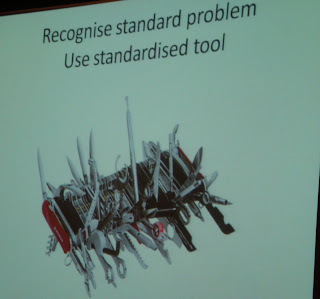Even better, the site gives you a link that you can send to people so they see an animation of your message being formed along with details of what and where the letters are.
Literacy across learning? Geography, Art and Design with a bit of ICT thrown in for good measure ...or just good fun?
- Posted using BlogPress from my iPad
























